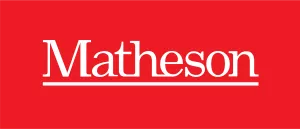H1 Merger Notifications
In the first half of 2021 ("H1 2021"), the Competition and Consumer Protection Commission (the "CCPC") received 32 merger notifications. This is a significant increase on the 18 merger notifications received in the first half of 2020 ("H1 2020") and the 17 filings received in the first half of 2019. This is the most filings the CCPC has received since the first half of 2018 when 50 mergers were notified. The decrease in notifiable transactions continues to reflect the increased financial thresholds for mandatory CCPC filings which came into effect on 1 January 2019 (see our previous article here).
Looking at the 32 transactions notified to the CCPC during H1 2021 in closer detail:
- 21 of the total mergers notified were cleared under the standard Phase 1 review procedure.
- Five notified mergers were cleared under the CCPC's simplified procedure.
- Two notified mergers were cleared subject to agreed measures (M/21/016 Pandagreen/Exomex; M/21/024 Orpea/FirstCare).
- Four notified mergers were subject to a requirement for further information ("RFI") – one merger has since been cleared (M-21-031 Glennon Brothers/Balcas), one merger is subject to an extended Phase I review process following the provision of such further information (M/21/021 - Bank of Ireland/Certain Assets of KBC) and two mergers are still collecting the further information requested (M/21/004 – AIB/BoI/PTSB - Synch Payments JV; M-21-046 Bank of Ireland/Davy).
- Three media mergers were notified requiring mandatory back-to-back notifications to both the CCPC and the Department of Communications, Climate Action & Environment (M/21/007 - Bauer / Communicorp; M/21/008 - DMG Media / New Scientist; M/21/028 - Bauer / Imagine Radio).
- None of the 32 mergers notified during H1 2021 have been subject to a Phase 2 review.
Positively, the average review period for a standard Phase 1 review in 2021 stands at just 17 working days, as against a statutory deadline of 30 working days – a significant decrease from an average of 25 working days during the same period in 2020. The average review period under the CCPC's simplified procedure was 13 working days.
The average review period for the four extended Phase 1 transactions notified in H1 2021 (M/21/031 Glennon Brothers/Balcas; M/21/004 – AIB/BoI/PTSB - Synch Payments JV; M/21/021 - Bank of Ireland/Certain Assets of KBC and; M/21/046 – Bank of Ireland/Davy) stands at 96 working days and counting (as of today's date). This demonstrates the increased burden that parties experience where the CCPC extends the Phase 1 review process by issuing an RFI (which has the effect of stopping and then restarting the Phase 1 'clock' once the parties have complied with such RFI).
CCPC Commitments Decision
The CCPC's commitments determination in M/21/016 – Pandagreen / Exomex in which the CCPC cleared the transaction subject to certain agreed measures raises some notable issues. The commitments sought by the CCPC include:
- A quasi-'upfront buyer' commitment whereby Pandagreen was required to enter into a non-binding Heads of Terms with the proposed purchaser, Thorton Recycling (or an alternative purchaser in certain circumstances) prior to completion of the main transaction. This is only the second time the CCPC has formally required an 'upfront buyer' type commitment proposal to date, following M/18/063 – Berendsen (Elis)/Kings Laundry (see our previous article here); and
- The divestment of a bundle of assets comprising customer records, waste collection bins and other ancillary assets, but seemingly no waste disposal real estate or waste disposal vehicles. Notably the assets appear to have been offered on the buy-side (as opposed to the target side, which is typical).
Notably, the commitments also constitute only the second ever divestment remedy at Phase 1 under the Competition Act 2002 (as amended).
CCPC Publishes Annual Report 2020
On 9 August 2020, the CCPC published its 2020 Annual Report which is its sixth such report since the CCPC was established in 2014. Below are some of the key highlights:
Merger control:
- The sections in the Annual Report on merger control activity contain a helpful overview of the CCPC's 2020 activity, although the CCPC's overview largely mirrors our own previous briefings and contains no new insights.
- The CCPC notes that 41 mergers were notified in 2020 (a 13% decrease when compared to 2019), with 15 mergers requiring an extended Phase 1 investigation, two of which went on to require a Phase 2 investigation. 43 merger determinations were made in 2020, one of which was made with commitments required to obtain clearance. The CCPC notes that all non-extended Phase 1 investigations were completed on average within 22.9 working days. This is a decrease when compared with the average of 24.7 working days in 2019.
- Nine notifications to the CCPC were in the 'Information and Communications' sector, while eight were in the 'Healthcare' sector, making these the most 'prominent' sectors in which the CCPC received notifications in 2020. The CCPC notes a decrease since 2019 in the number of filings for transactions in the motor and real estate sectors.
- The CCPC highlights the establishment of the simplified merger notification procedure, under which notifying parties of any mergers, which do not raise considerable concerns from a competition perspective, are exempt from the requirement to provide certain information. Seven mergers were cleared under this procedure between July and December 2020.
- Merger control moved from a paper-based system to an online system and the CCPC obtained statutory designation to carry out remote oral hearings for Phase 2 merger reviews.
- The CCPC notes that in March 2020 it put in place measures to ensure business continuity when reviewing notified mergers, including extending the time limits for responses to Requests for Information (RFIs) under formal powers.
Competition enforcement:
- The CCPC notes its ongoing competition law investigations, including in the private motor insurance and ticketing sectors, remarking that in 2020 it issued preliminary findings to parties in the private motor insurance sector and sought a High Court order on an agreement entered into with Ticketmaster Ireland.
- Shortly after publication of its Annual Report 2020, the CCPC closed its investigation into the private motor insurance sector. On 20 August 2021, the CCPC announced that it had successfully attained undertakings from six insurers which were under investigation. In its press release, the CCPC noted that the parties had 'agreed to reform their internal competition law compliance programmes'.
- The CCPC has continued a formal investigation into alleged resale price maintenance by a UK household furniture wholesaler. This investigation was continuing at the end of 2020 and the CCPC had continuous engagement with the wholesaler throughout 2020 to address these competition concerns.
- The CCPC continued an investigation into alleged anti-competitive behaviour by the Restaurants Association of Ireland.
Competition law policy:
- The CCPC highlighted its strong support for the goals and content of the ECN+ Directive (Directive EU 2019/1) and the new competition legislation, the Competition (Amendment) Bill 2021, which is expected to be introduced in 2021. (see our recent article here).
- The CCPC notes the purpose of the amendments is to enhance the CCPC's powers in competition enforcement and in enforcement of the statutory merger review regime. The ECN+ Directive requires Ireland to establish non-criminal financial penalties for violations of EU competition law. The CCPC believes this will fill a substantial lacuna in existing competition law policy in Ireland, and that it is therefore vital to effectively enforce competition law in Ireland.
- The CCPC notes that it has a strong preference towards the establishment of an administrative enforcement regime in Ireland in which the CCPC itself has the power to implement fines for violations of competition law.
The content of this article is intended to provide a general guide to the subject matter. Specialist advice should be sought about your specific circumstances.



